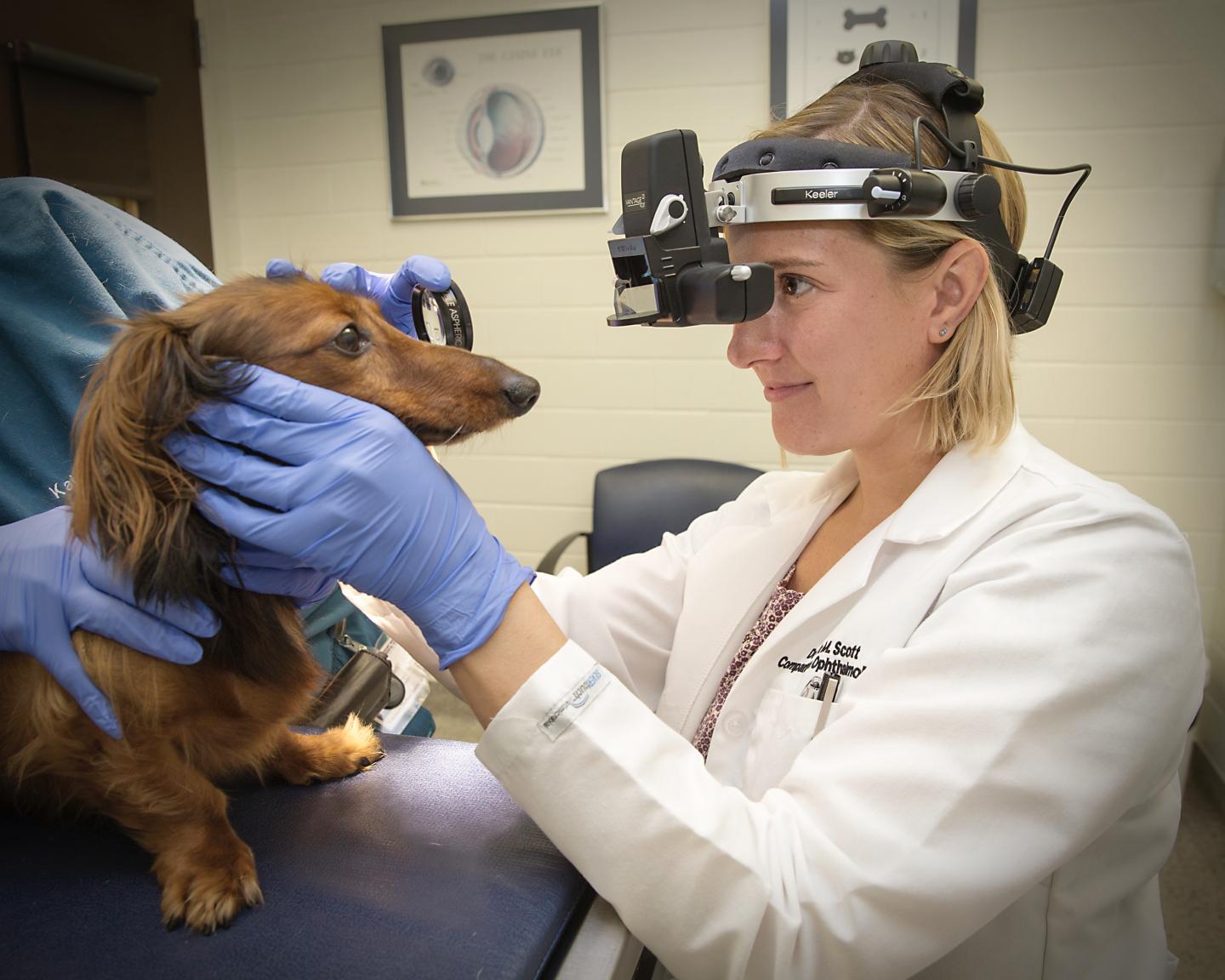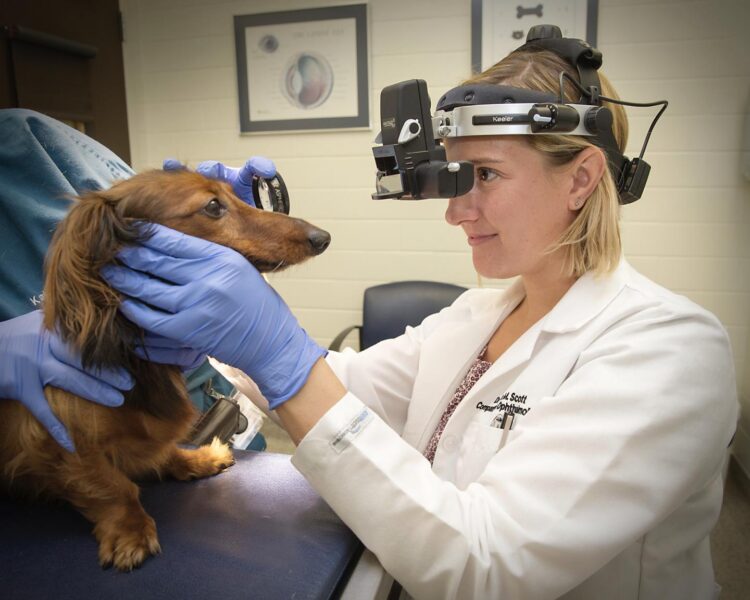A College of Veterinary Medicine and Biomedical Sciences and College of Pharmacy team believes the medication may also translate to the treatment of cataracts and uveitis in humans

Credit: Texas A&M University College of Veterinary Medicine & Biomedical Sciences
Researchers at Texas A&M University have produced a therapeutic derived from turmeric, a spice long-praised for its natural anti-inflammatory properties, that shows promise in decreasing ocular inflammation in dogs suffering from uveitis, an inflammation of the eye that leads to pain and reduced vision.
Uveitis — a common condition in dogs, humans, and other species — can have many causes, often occurring secondary to infectious diseases cancer, and autoimmune diseases; it also is found in patients with longstanding cataracts and after operations correcting cataracts.
“Uncontrolled inflammation inside the eye, also known as uveitis, is a leading cause of complications after cataract surgery in dogs. The management of postoperative ocular inflammation is a major challenge observed in both human and veterinary ophthalmology,” said Dr. Erin Scott, an assistant professor at the Texas A&M University College of Veterinary Medicine & Biomedical Sciences.
In a recent paper published in Science Advances, Scott and her colleagues at the Texas A&M University College of Pharmacy tested the anti-inflammatory properties of curcumin, a compound found in turmeric, and discovered that when processed to a special nanoparticle formulation to boost absorption, the natural compound is safe and effective at managing uveitis without any known side effects.
Oral medications currently used to treat uveitis must be adequately absorbed into the blood stream for their medicinal effects to be effective. This requires the medication to successfully pass through the intestinal barrier — the physical barrier between the gut and the rest of the body via the circulatory system — which limits the absorption of many drugs.
Drug delivery to the eye presents additional challenges because of the blood-ocular barrier — the physical barrier between blood vessels and tissues of the eye — which tightly controls what substances can pass into the eye.
Therefore, researchers must find ways to bypass such barriers to improve drug availability within the body.
Scott and her colleagues’ research implemented a novel formulation of curcumin that improved transport of the substance across both intestinal and ocular barriers. By adding nanoparticle molecules that interact with receptors on a ubiquitous transmembrane carrier protein, known as the transferrin receptor, curcumin is able to hitch a ride across crucial barriers, improving absorption of the substance and reducing ocular inflammation.
Curcumin is especially attractive as a candidate for management of uveitis because it has no known side effects.
“Current treatments include a combination of systemic and topical anti-inflammatory medications, either in the form of steroids or non-steroidal anti-inflammatory drugs (NSAIDs),” Scott said. “While both these medications are effective in the treatment of uveitis, they can cause unwanted side effects, such as vomiting, diarrhea, stomach ulcers, negatively impact kidney and liver function, and increase glucose levels in diabetic patients.”
Scott and her colleagues hope to start a clinical trial in the Texas A&M Veterinary Medical Teaching Hospital using this new medication in the near future and are optimistic that the utility of their findings may benefit populations beyond dogs.
“This medication may translate to the treatment of cataracts and uveitis in humans,” she said. “By studying animal patients with naturally occurring eye diseases, our findings may accelerate the development of medications to benefit both animals and humans.”
###
Media Contact
Jennifer Gauntt
[email protected]
Original Source
https:/
Related Journal Article
http://dx.





